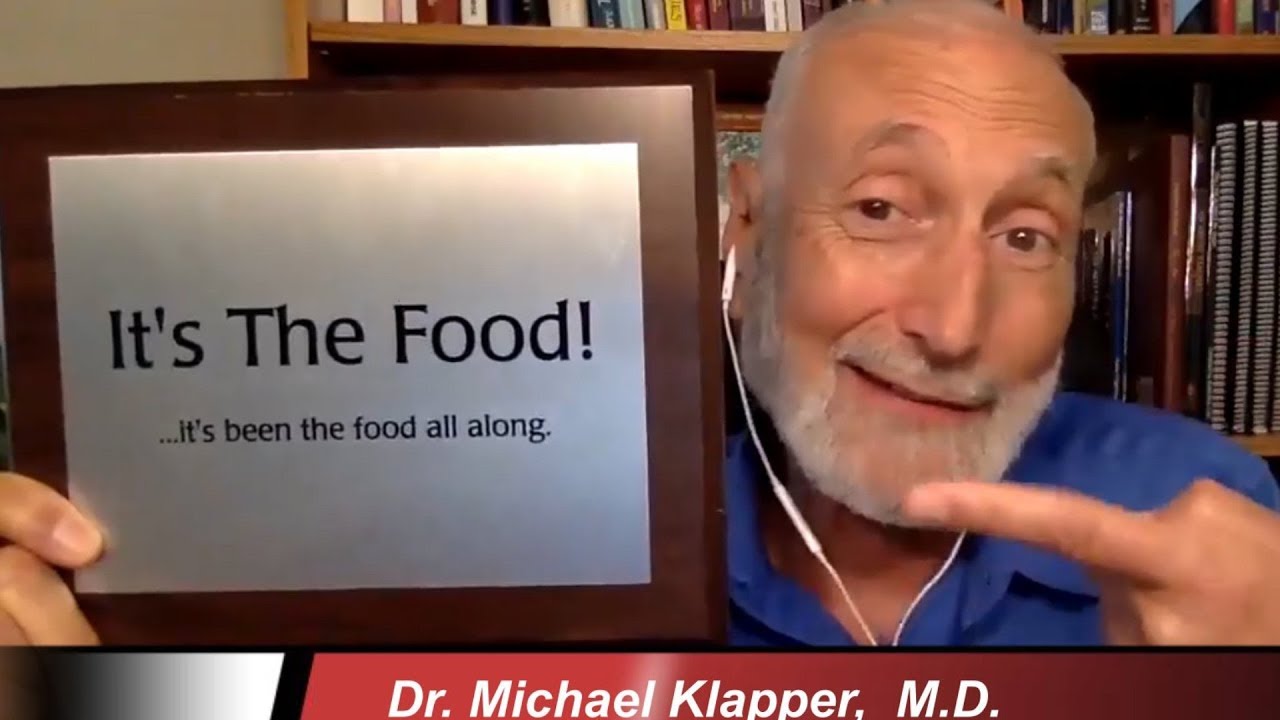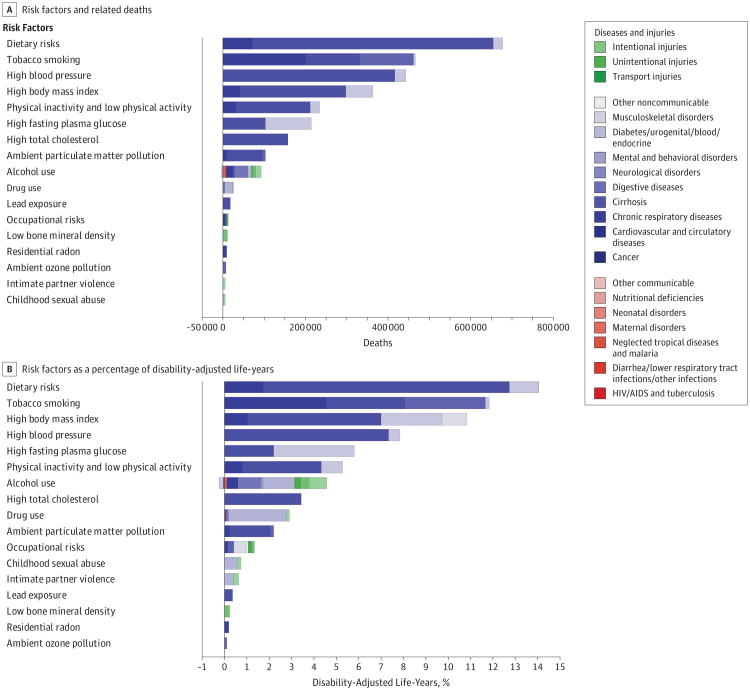(3 mins) Transcript.
Global Burden of Disease Study is funded by Bill & Melinda Gates Foundation. It's the largest ever study for understanding the risk factors underlying death and disability worldwide.
Is diet the #1 factor underlying death and disability in USA? Yes. The top bars in the figure below are called "Dietary Risks":
Source: The state of US health, 1990-2010: burden of diseases, injuries, and risk factors by US Burden of Disease Collaborators, JAMA, 2013 Aug 14;310(6):591-608.
The title of the video below is 'Hot Dogs & Leukemia' but the goal of this video is to understand, "How much cancer risk can be avoided through lifestyle change?"
(2 mins) Transcript.
A couple of diagrams from the research paper that Dr Greger is referring to:
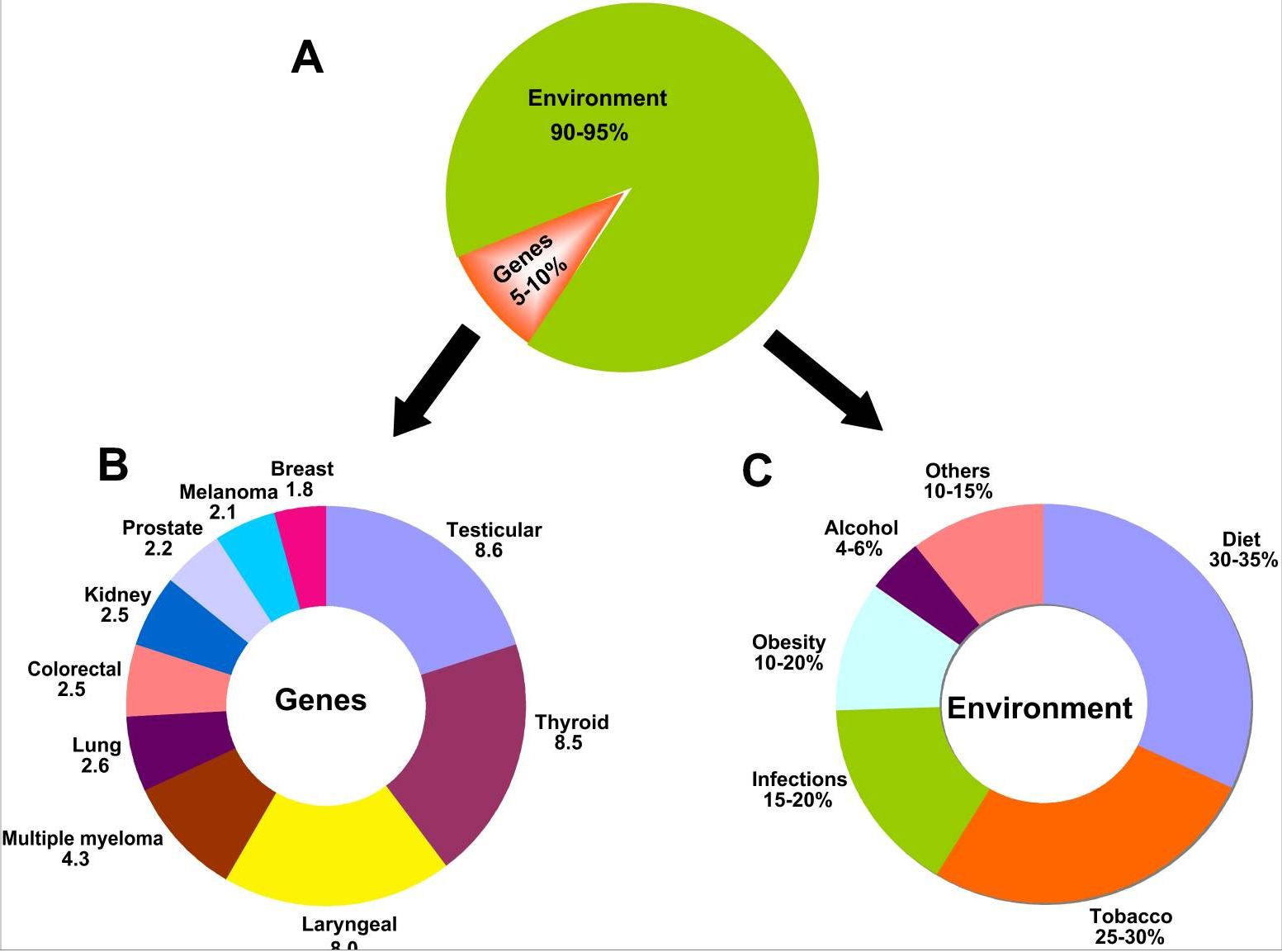
Source: Cancer is a Preventable Disease that Requires Major Lifestyle Changes by Anand et al, Pharm Res., 2008 Sep; 25(9): 2097-2116.
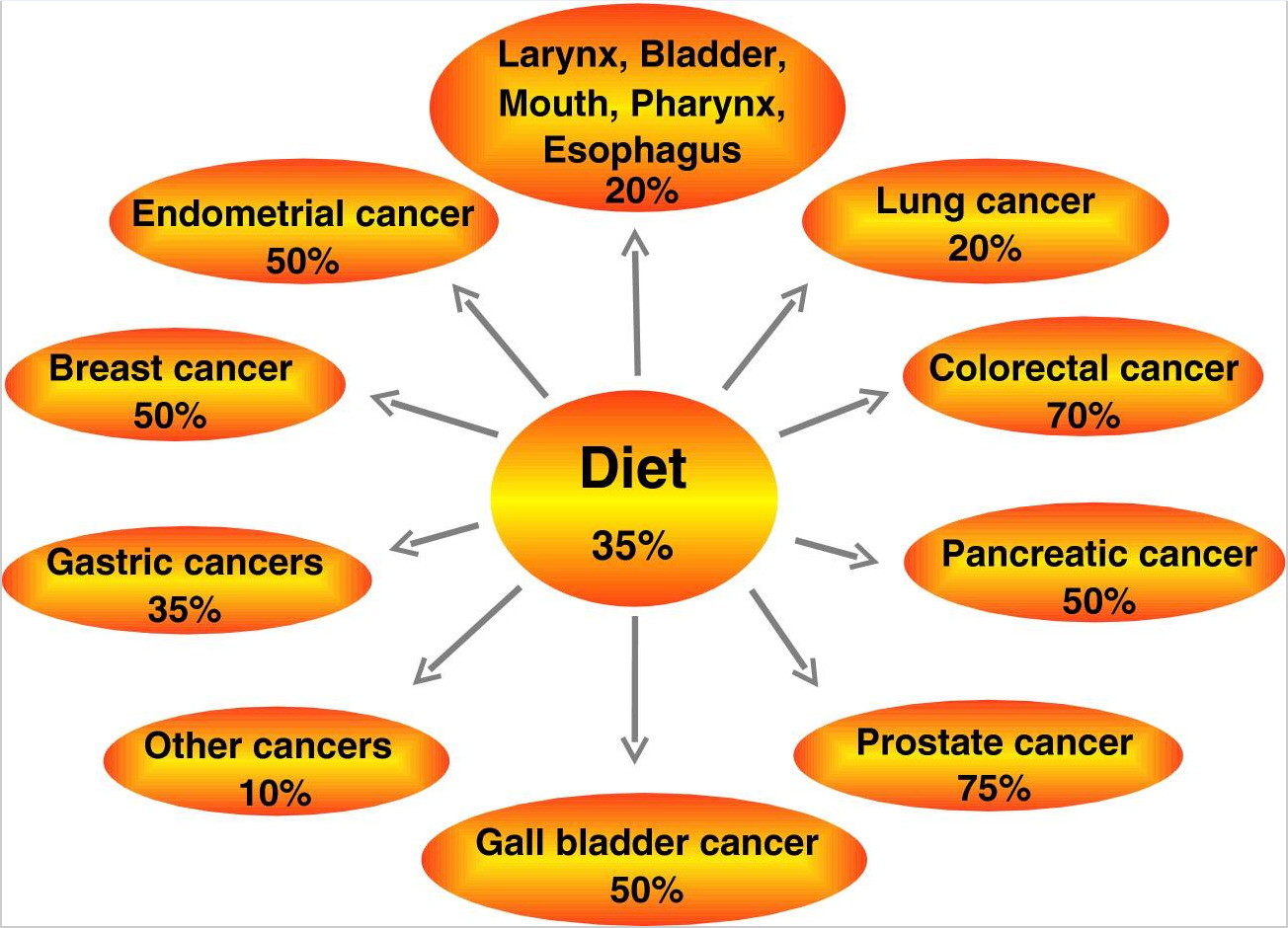
Source: Cancer is a Preventable Disease that Requires Major Lifestyle Changes by Anand et al, Pharm Res., 2008 Sep; 25(9): 2097-2116.
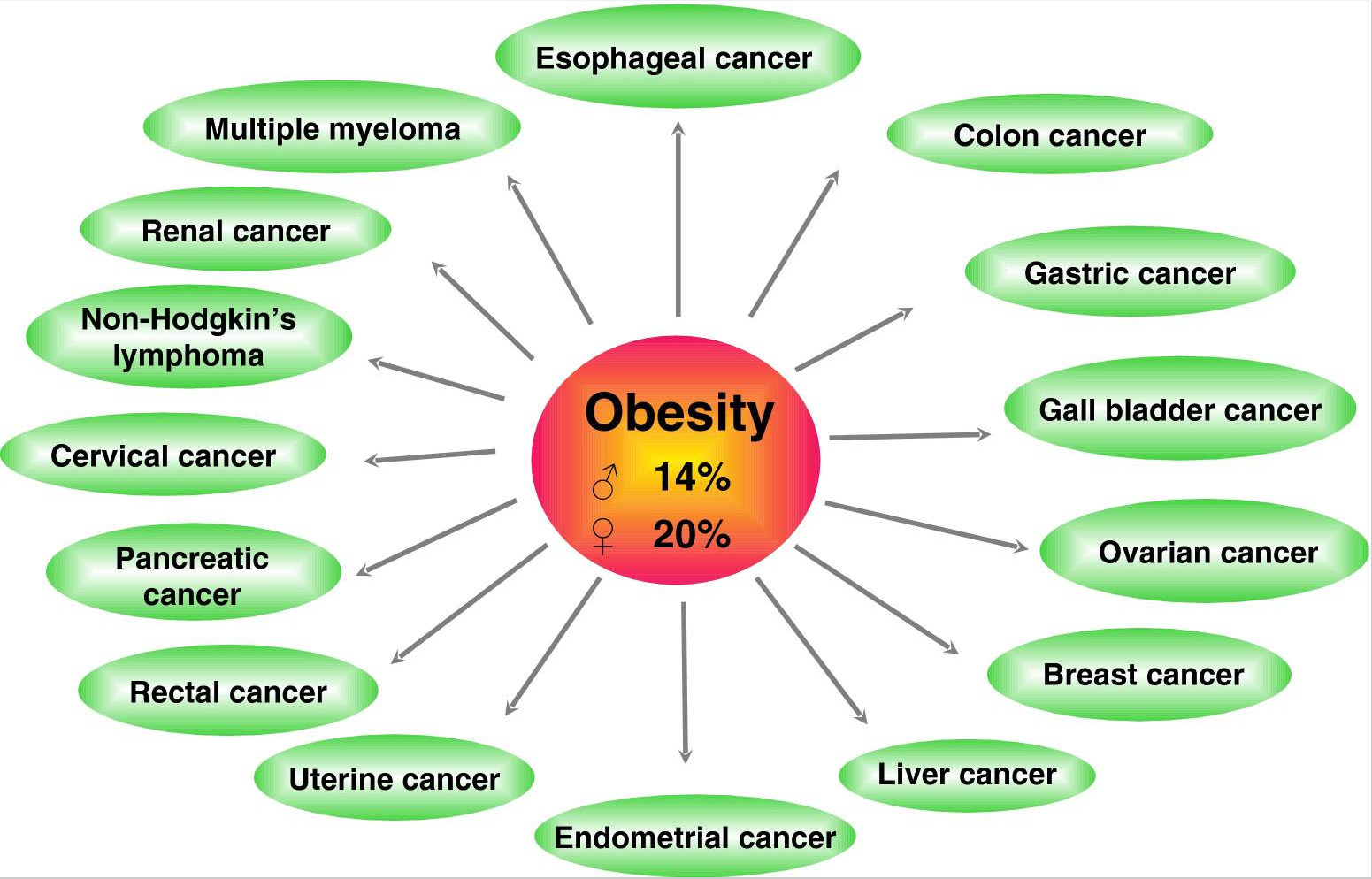
Source: Cancer is a Preventable Disease that Requires Major Lifestyle Changes by Anand et al, Pharm Res., 2008 Sep; 25(9): 2097-2116.
Neutralizing Tumor-Promoting Chronic Inflammation: A Magic Bullet? by Coussens et al, Science 2013 Jan 18; 339(6617): 286-291 explains:
In other words, only 5% of cancer is being attributed to genes, 95% is being attributed to our non-genetic (mostly lifestyle) factors like tobacco, diet, obesity (which is linked to diet), infectious agents and polllutants.

 Instagram
Instagram YouTube
YouTube